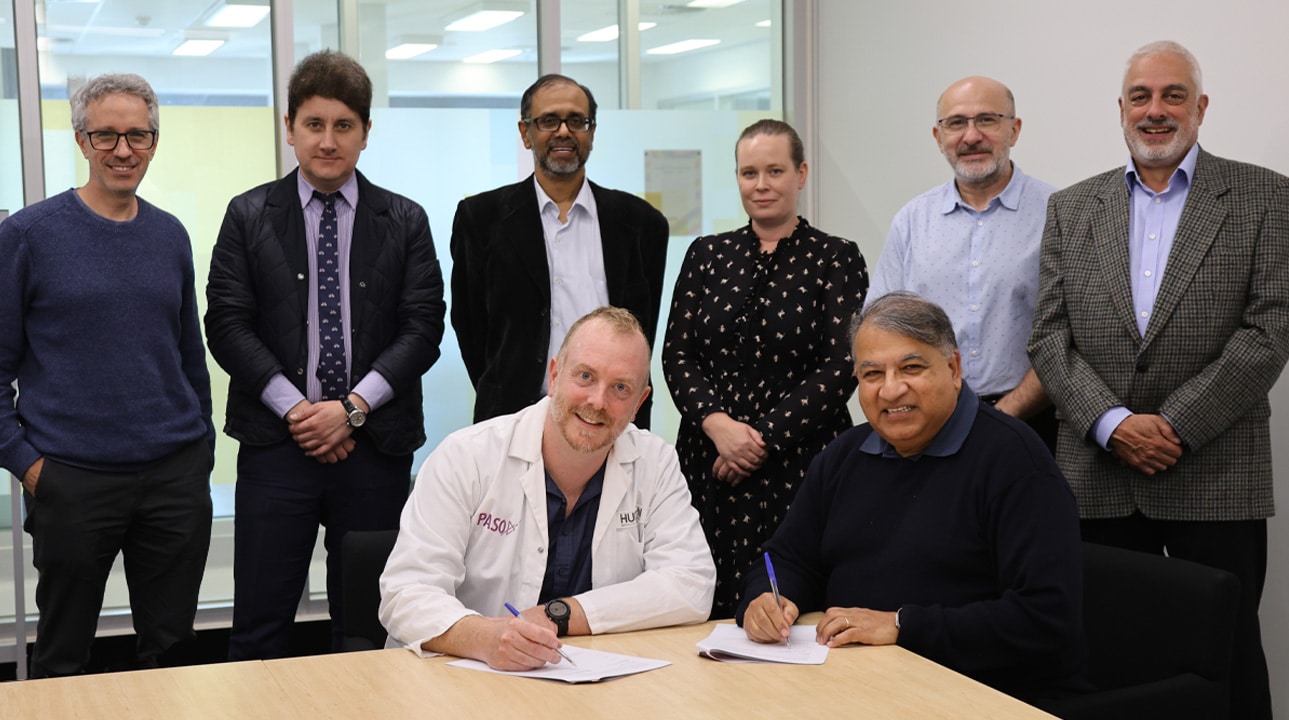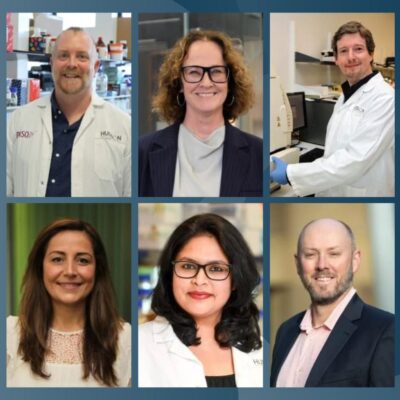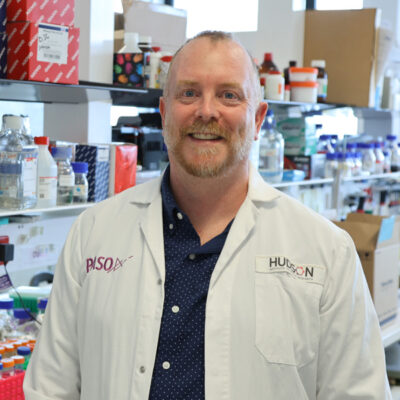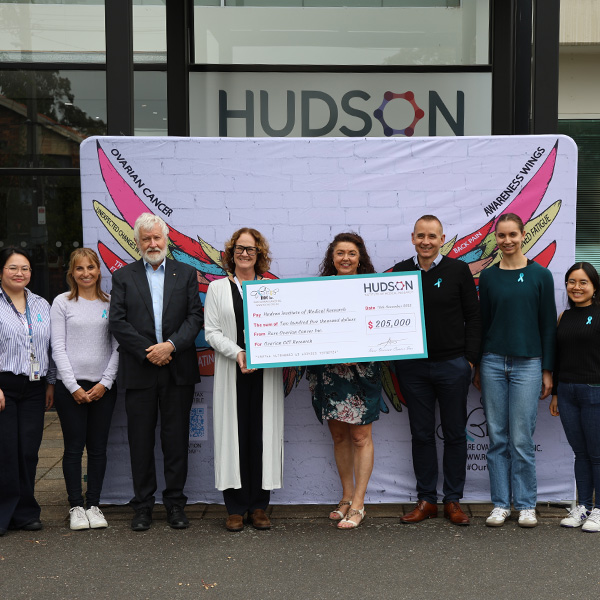PASO Fellowship cements Hudson’s lung cancer leadership
By Rob Clancy, staff writer

Associate Professor Daniel Gough has received the first ever PASO Fellowship at Hudson Institute, securing the future of his ground-breaking lung cancer research.
LUNG CANCER FACTS *
-
- Every minute one Australian dies from lung cancer
- Lung cancer is the most lethal cancer, worldwide
- 1 in 10 men with lung cancer have no smoking history
- 1 in 3 women with lung cancer have no smoking history
- 200,000 Australians are at risk of developing lung cancer
The five-year, million-dollar PASO Fellowship will see A/Prof Gough and his team continue and expand their work on new lung cancer treatments, with unprecedented security.
Established in 2004 in Frankston, Victoria, PASO (Peninsula and South East Oncology) Medical is one of Victoria’s leading integrated providers of Oncology and Haematology services. PASO comprises three complementary units: Clinical Trials, Consulting Suites and Private Same Day Hospital and Infusion Centre. Over the years, PASO has established a well-deserved reputation as a centre of excellence for Clinical Trials.
PASO Fellowship: cancer research
A/Prof Gough paid tribute to PASO’s dedication to research and its foresight in providing this long-term commitment.
“It’s well known that lung cancer is the deadliest cancer of all and that new treatments are desperately needed,” he said. “This fellowship means that my team and I can spend more time in the lab discovering and testing potential cures and less time applying for scarce funding.”
Medical Director and Founder of PASO Medical, A/Prof Vinod Ganju, added: “I am thrilled to announce our collaboration with Hudson Institute. This partnership represents a significant milestone in our commitment to advancing research and innovation and leveraging our collective expertise to make meaningful contributions to cancer research and treatment.”
Better therapeutics for lung cancer
A/Prof Gough is head of Hudson Institute’s Signal Transduction in Cancer Biology Research group. They investigate the tumour-immune ecosystem, with the goal of identifying how its interactions could be manipulated to find new therapeutic approaches.
This group guides new treatment approaches by defining how disruption to immune signalling pathways, including those that engage the critical STAT family of proteins, alters the onset and progression of lung cancer tumours.
A/Prof Gough directly mentors a postdoctoral fellow, two PhD students (a third will commence this year), a research assistant and a bioinformatician.
“The team conducts the kind of discovery science that forms the building blocks of the next generation of cancer treatments. We then translate these findings into sophisticated cancer models and patient tissue samples, creating a detailed understanding of the cancer ecosystem,” A/Prof Gough said.
“The overarching goal of this work and the new PASO Fellowship is to use this knowledge to design better therapeutic approaches for lung cancer patients.”
* Source: Australian Institute of Health and Welfare 2023 – Cancer data in Australia.
This research was supported by | PASO (Peninsula and South East Oncology) Medical
In this article
About Hudson Institute
Hudson Institute’ s research programs deliver in three areas of medical need – inflammation, cancer, women’s and newborn health. More
Hudson News
Get the inside view on discoveries and patient stories
“Thank you Hudson Institute researchers. Your work brings such hope to all women with ovarian cancer knowing that potentially women in the future won't have to go through what we have!”





